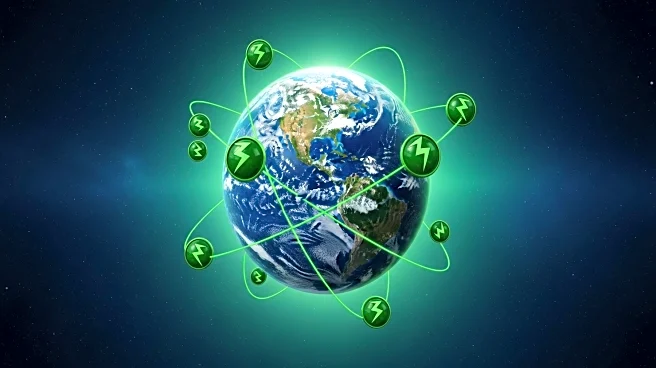What is the story about?
What's Happening?
President Trump has withdrawn the United States from the Paris Agreement, a global accord aimed at reducing greenhouse gas emissions. This decision is part of a broader effort by Trump to dismantle climate initiatives, including opening wilderness areas for hydrocarbon drilling and reducing regulations on the fossil fuel sector. The withdrawal has led major U.S. banks, such as Citigroup and JPMorgan Chase, to exit the net zero alliance, which was committed to aligning activities with the Paris Agreement. This move has contributed to a significant increase in investment in the fossil fuel sector, with global banks committing $869 billion to fossil fuel finance in 2024.
Why It's Important?
The withdrawal from the Paris Agreement by the U.S. under President Trump has significant implications for global climate efforts. It undermines international cooperation on climate change and may lead to increased fossil fuel exploitation, further exacerbating environmental issues. The decision also impacts the financial sector, as banks shift their investments towards fossil fuels, potentially delaying the transition to renewable energy. This could result in long-term environmental and economic consequences, affecting global efforts to mitigate climate change.
What's Next?
As the Cop30 climate conference in Brazil approaches, the global community faces challenges in advancing climate action. Countries are required to submit their national climate plans, but many have delayed, reflecting a diminished priority on emissions reduction. The U.S. withdrawal from the Paris Agreement may influence other nations' commitments, potentially leading to weakened global climate policies. The focus will be on whether international pressure can encourage the U.S. to reconsider its stance and re-engage in climate initiatives.
Beyond the Headlines
The decision to withdraw from the Paris Agreement highlights the tension between economic interests and environmental responsibility. It raises ethical questions about the prioritization of short-term economic gains over long-term sustainability. The move may also influence public perception and policy debates on climate change, potentially affecting future elections and political agendas.
















